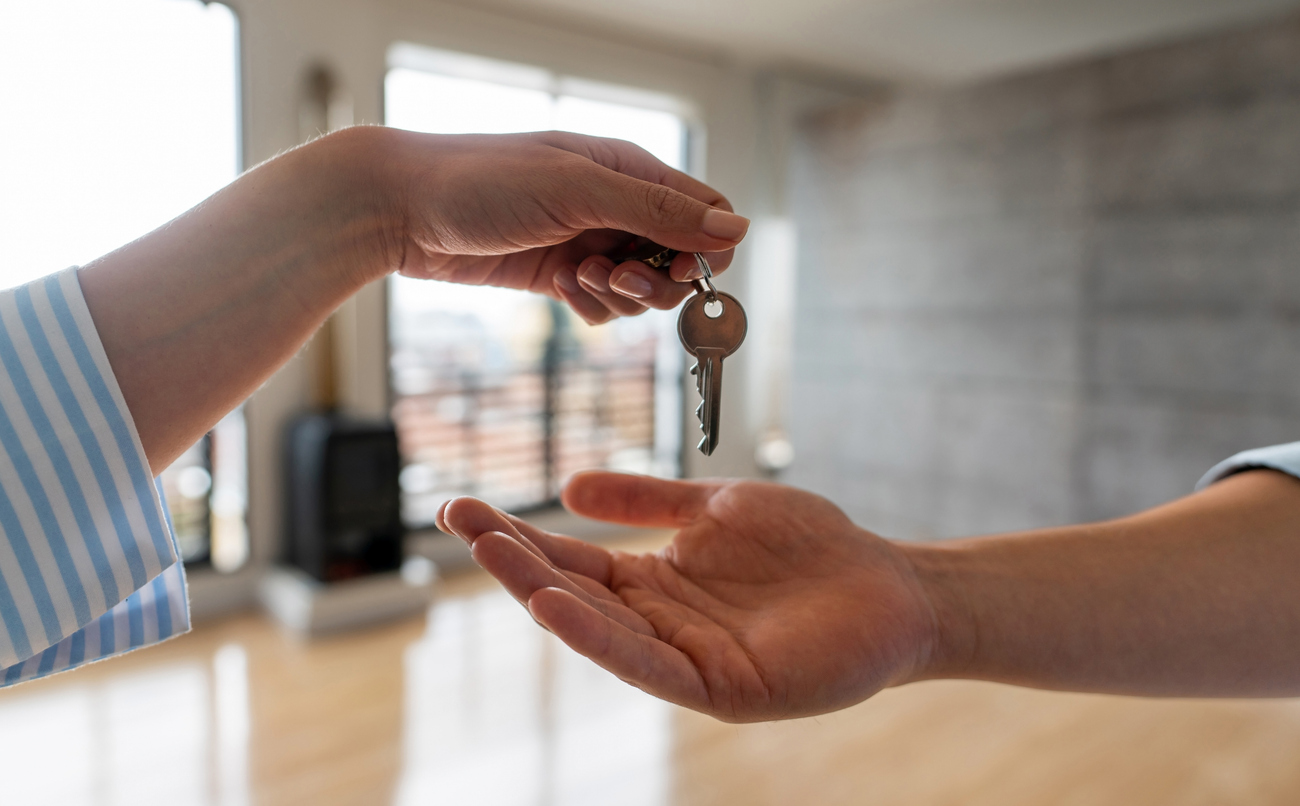A good friend and former colleague of mine (let’s call him Paul) is moving out of his studio condo in Greenbelt Hamilton, Makati after two years. A water leak from an adjacent condo unit has been bothering him for over half that time.
Despite repair requests and persistent follow-ups with the landlord, no action was done to fix the problem. He got a rent increase instead.
Searching for condos for rent, he found a one-bedroom condo priced very close to his current unit — but with a bigger living space and more natural light. Plus, it’s just a few blocks away and still within the bounds of Legazpi Village.
Renting definitely has its ups and downs. But when you’re on the receiving end of one-sided lease terms or an unreasonable landlord, accepting your fate isn’t the only option.
Looking for homes for rent or already in an active rental agreement?
Here are some tips on how to get the most out of your lease or how to get out of a bad one — just like Paul.
1. Know your rights as a tenant/renter
The Philippines has rental laws that recognize the basic rights of tenants/renters. These relevant provisions are mainly found in the Civil Code (1950) and Rent Control Act (2009). Here are some of the salient points.
From the Civil Code:
- Termination of lease due to uninhabitable conditions. The lessee has grounds to terminate the lease if a dwelling place or any building for human habitation is in a condition that brings imminent and serious danger to life or health. This is enforceable even if the lessee signed the contract while being aware of the dangerous condition or waived the right to rescind the lease.
- Allowing necessary repairs to the property. The lessee is obliged to tolerate necessary repair works on the leased premises. However, if the repairs last more than 40 days, rent shall be reduced in proportion to the time and the part of the property that the lessee was deprived of.
- Compensation for useful improvements. The lessee is entitled to reimbursement upon lease termination for useful improvements made in good faith — without major alterations to the leased property. Amount is half the value of improvements done. If the lessor refuses to reimburse, the lessee may remove the improvements.
From the Rental Control Act:
- Limits on rent increase. Landlords cannot increase rent beyond legal limits set. Increases may be done once per year (2% for ₱4,999 rent and below, 7% for ₱5,000 to ₱8,999 rent, 11% for ₱9,000 to ₱10,000 rent).
- No eviction without legal grounds. Landlords cannot evict tenants on a whim. They must have justified reasons for eviction (permanent or temporary), such as violation of lease terms, long overdue rent, necessary repairs to the property, and lease contract expiration.
- Limits on security deposits and advance rent. Landlords are generally limited to a security deposit worth two months of rent and advance rent worth one month. If there are no valid deductions, the full deposit payment must be returned upon non-renewal of lease.
For more detailed information on relevant rental laws and their recent amendments, it’s best to consult a legal professional.
2. Negotiate the rental price
For experienced renters, negotiating rent may seem obvious. For those who are fairly new, it can feel like uncharted territory. But it begs the question: do you really need to negotiate price?
It depends on lease terms, the going rental rates in a given locale, and a host of other factors that vary from person to person. Ultimately, negotiating your rent is optional, but don’t shy away from it if you sense a real need to talk it out with the landlord.
Less rent means a bit more money in your pocket, which can go towards a number of equally important aspects of your life: personal savings, leisure, continuing education, and family needs.
💡Know prevailing market rates before negotiating
Up-to-date market information is important to have on hand before negotiating price. Homes for rent in the Philippines can range from ₱7,000 (a house for rent in Imus, Cavite) and ₱35,000 (a condo for rent in BGC).
Real.ph shows you different price points for houses and condos for rent. Listings are verified before they’re uploaded on our platform, so you’ll have all the info you need to make a proper decision.
Whether you’re searching for a new place to live in or your next property investment, you can find it all on Real. Create a free account today to get started!
3. Can’t lower the rent price? Try for a lower deposit
If you have no luck negotiating the rent, consider going for a lower security deposit. Landlords typically require two months’ worth of rent, with some even demanding up to three months — which can be excessive.
But if the property requires little upkeep or there are some serious (yet bearable) issues you’re willing to live with, it may be worth negotiating for a lower deposit.
Those extra funds can go towards your moving expenses or other more urgent needs.
4. Identify who is responsible for certain repairs
As you review the lease contract line by line, make sure it’s clearly stipulated who is responsible for certain repairs and maintenance work throughout the lease term.
Most lease contracts follow a template containing standard language on these matters. For instance, it’s normal for tenants to cover minor aspects like changing light bulbs, routine aircon cleaning, and areas that go through natural wear and tear. Major repairs for broken fixtures and appliances may be included if tenants or their household members caused the damage in the first place.
Meanwhile, landlords (and in some cases, the homeowner association) usually have the following repairs/maintenance responsibilities:
- Doors, windows, and locks
- Appliances provided by the landlord
- Structural integrity of the leased property
- Water damage caused by adjacent units
- Common areas (e.g. stairways, hallways, community amenities)
5. Request essential repairs prior to the start of lease
Thoroughly inspect the property for any issues that can have a major impact on your stay. Pointing out these problems before the start of the lease absolves you of responsibility for repairs later on.
Keep your eyes peeled for:
- Door damage, especially door knobs and their locking mechanisms
- Slow or non-draining sinks in the kitchen, bathroom
- Non-functioning water heater in bathrooms
- Toilet and bidet problems
- Faulty appliances (e.g. refrigerator, microwave, TV)
- Faulty outlets and potential wiring issues
- Broken cabinet hinges
- Cracked or broken windows
- Signs of cockroach infestation
6. Ask for additional furnishings, appliances
There’s no harm in requesting for furnishings to help make your stay more comfortable.
If the unit is unfurnished, you can try asking for air conditioning, beds, tables, refrigerator, and closet storage — at the very least. If the unit is semi-furnished, see if the landlord is willing to grant your requests for other items you deem as essentials.
Keep in mind there’s no guarantee you’ll get a yes for everything you ask for. So if the property overall is not meeting your needs, it may be best to move on and look elsewhere.
7. Whenever possible, negotiate face-to-face
Whether it’s negotiating major lease terms or making big requests, try to meet in person or at the very least, go on a call. It’s a nerve-wracking experience for sure, but it can pay off if you play your cards right.
Talking to the landlord face-to-face gives you the opportunity to add a layer of personal touch which can help each side better understand each other.
Recall the last time you faced another human being on the other side of the negotiating table. Have you ever noticed how hard it was to say “no” definitively?
8. If the need arises, file a formal complaint
Although rental laws in the Philippines are intended to uphold tenants’/renters’ rights, you may find that there’s a lack of concrete details on implementation. In other words, mechanisms to resolve tenant-landlord disagreements may not be readily available.
If you’re not sure what to do following a potential violation of your rights as a tenant/renter, seek assistance from your local barangay. Local officials have some capacity help resolve these issues. If the matter falls outside of their authority, they can advise you on the appropriate next steps.
Alternatively, you can also seek out expert advice from licensed real estate agents/brokers. These real estate professionals have practical experience with a range of tenant-landlord issues in Philippine real estate.
At Real.ph, you can find PRC-licensed real estate agents and verified listings for homes for rent in the Philippines. Create a free account today to start exploring!






























